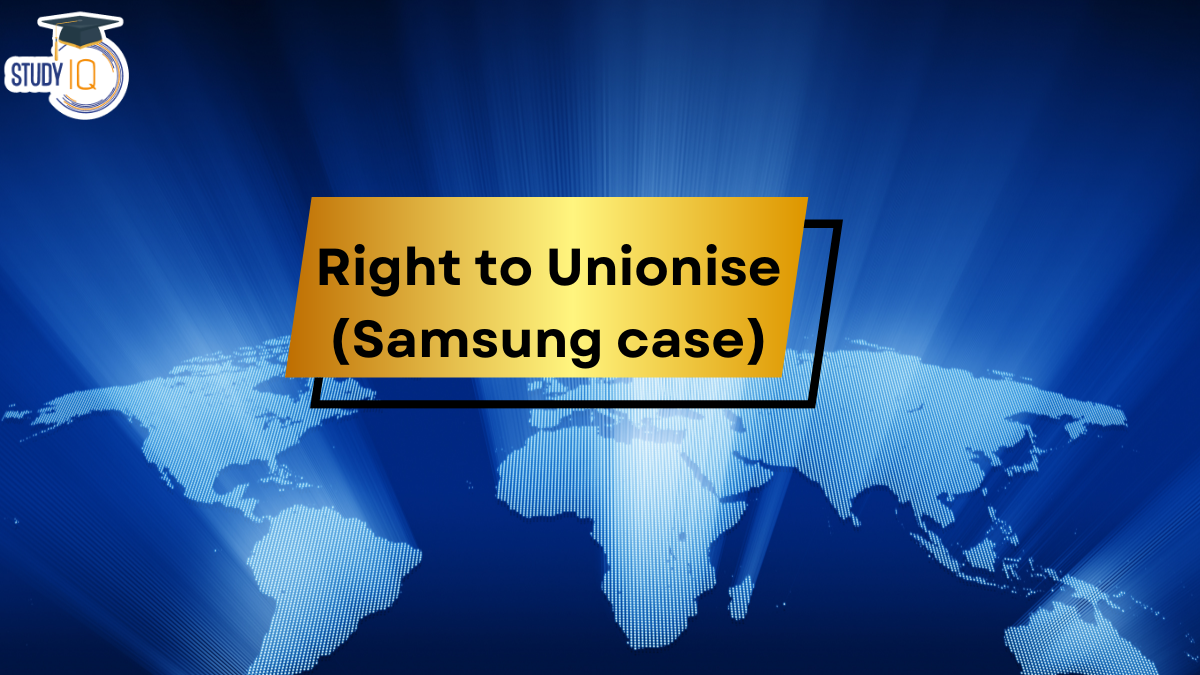Table of Contents
Challenges Faced by SIWU
- Registration Issues: The SIWU’s application for registration is currently pending in the Madras High Court. Without this registration, the union lacks legal standing and protections that would facilitate collective bargaining and safeguard its members during strikes.
- Samsung’s no union policy: Samsung has maintained a ‘no union’ policy since its inception more than 80 years ago. But in July 2021, Samsung Display workers were successful in getting a 4.5% wage revision through negotiation.
- Controversy Regarding name: Samsung objected to the use of its name in the Samsung India Workers Union (SIWU), citing the Trade Marks Act, 1999, which protects against the unauthorised use of registered trademarks in business names.
About Trade Unions Act 1926
- It is a landmark legislation in India that provides for the registration of trade unions and associations of employers:
- It aims to promote cordial relations between employers and employees, and to facilitate peaceful dispute resolution.
- Trade Union: According to Section 2(h), a trade union is defined as a combination of workers formed primarily to regulate relations between workmen and employers, or among workers themselves, or between employers.
- Registration: The Act allows for the registration of trade unions, which is not mandatory but highly beneficial. Registered unions enjoy legal recognition, which grants them certain protections and privileges.
Stance of Supreme Court
- The Supreme Court in R. Singh versus Union of India in 1989 upheld the right to form associations or unions as a fundamental right under Article 19(1)(c) of the Constitution.
- Restrictions on this right can only be imposed if there is a risk to public order, morality, sovereignty or integrity of India.
- Under the Trade Unions Act, 1926, it is the duty of the Registrar of Trade Unions to facilitate the registration of trade unions and provide workers immunity from civil or criminal action.
| Right to Strike |
|


 Unlocking the Potential of India–Afric...
Unlocking the Potential of India–Afric...
 Speedy Justice and the Crisis in Consume...
Speedy Justice and the Crisis in Consume...
 Kavachi Volcano: Location, Features, Eru...
Kavachi Volcano: Location, Features, Eru...

























